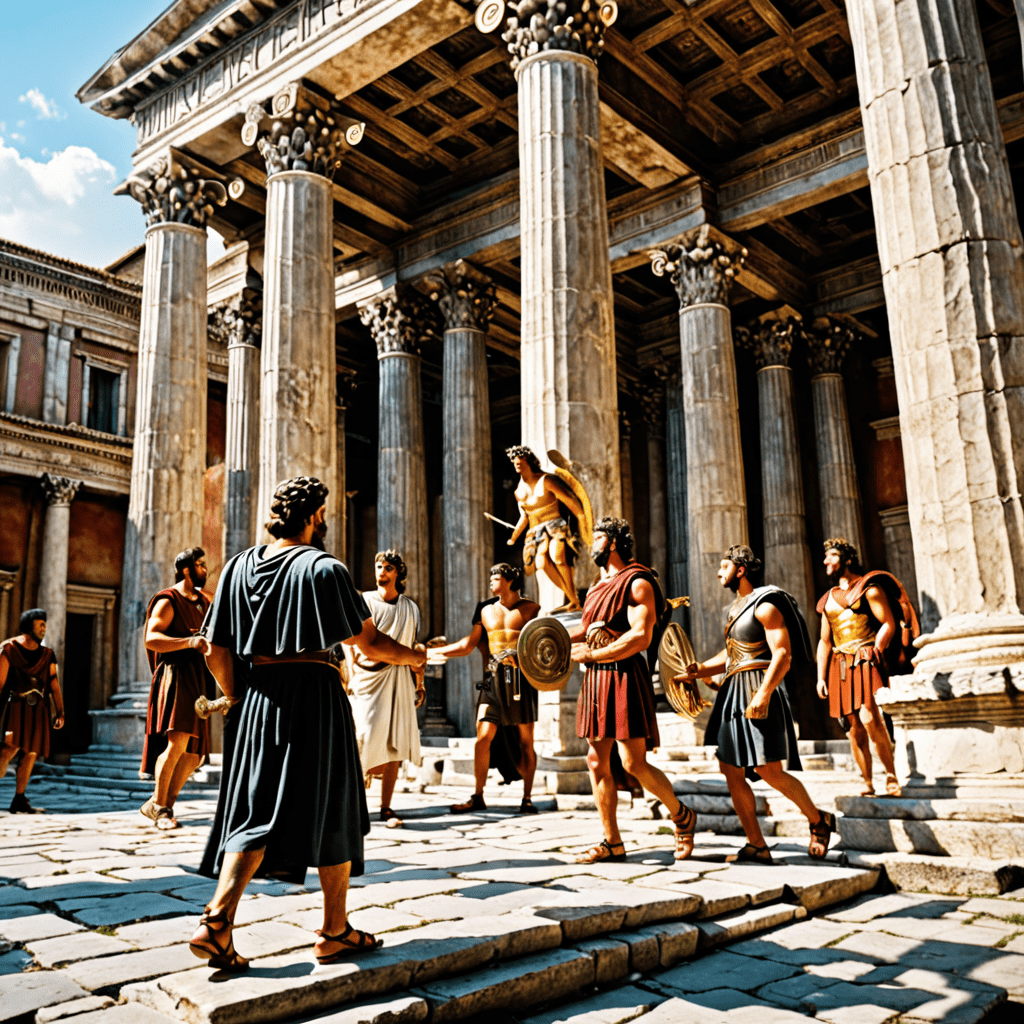The Influence of Roman Mythology on Roman Education
Roman mythology played a significant role in shaping various aspects of Roman society, including education. Let’s explore how Roman mythology influenced the educational practices of ancient Rome.
1. Integration of Mythological Stories in Curriculum
Ancient Roman education often involved the teaching of mythology as part of the curriculum. Myths and legends were utilized to impart moral lessons, cultural values, and historical knowledge to young Roman citizens. By learning about mythological figures such as Jupiter, Mars, Venus, and Minerva, students gained insight into important virtues like courage, wisdom, love, and war strategies.
2. Moral Lessons Through Mythological Tales
Roman myths were not just entertaining stories but served as powerful tools for instilling ethical principles among students. For example, the tale of Romulus and Remus, the legendary founders of Rome raised by a she-wolf, emphasized the value of loyalty to one’s homeland and the importance of sibling bonds. These moral lessons were integrated into the educational framework to nurture good citizenship and societal responsibility.
3. Influence on Arts and Literature
Besides formal education, Roman mythology influenced various art forms and literary works. Poets like Virgil drew inspiration from mythological narratives to compose epic poems like the “Aeneid,” which celebrated Rome’s legendary past and its divine origins. Artists depicted mythological scenes on frescoes, mosaics, and sculptures, contributing to both aesthetic appreciation and mythological education.
4. Cultivation of Civic Virtue
Through the study of mythological tales, Roman education aimed to cultivate civic virtues such as dutifulness, piety, justice, and bravery. Students were encouraged to emulate the noble deeds of mythological heroes and heroines, thereby fostering a sense of honor and moral uprightness. The myths also served as a common cultural narrative that bound the diverse Roman society together.
In conclusion, Roman mythology exerted a pervasive influence on Roman education by infusing moral teachings, cultural values, and a sense of national identity into the fabric of ancient Roman society. The stories of gods, goddesses, and legendary figures not only enriched the educational experience but also shaped the moral character of generations of Roman students.
FAQs about The Influence of Roman Mythology on Roman Education
What role did Roman mythology play in Roman education?
Roman mythology was deeply intertwined with Roman education, serving as a foundational element in teaching moral values, history, and civic duties. Myths were used to instill virtues, ethics, and a sense of cultural identity in students.
How were Roman myths incorporated into educational practices?
Roman educators utilized myths as storytelling tools to impart important lessons and knowledge to students. They integrated myths into various subjects such as literature, art, and philosophy, allowing students to learn about gods, heroes, and legendary events.
Did Roman mythology influence the curriculum of Roman schools?
Yes, Roman mythology heavily influenced the curriculum of Roman schools. Myths were included in reading materials, discussions, and even theatrical performances to engage students and reinforce key societal values and beliefs.
What impact did learning about Roman mythology have on students?
Studying Roman mythology not only enriched students’ understanding of their cultural heritage but also helped develop critical thinking skills, creativity, and an appreciation for literature and the arts. It fostered a sense of community and shared identity among learners.
How did Roman mythology shape the overall educational experience in ancient Rome?
Roman mythology served as a cornerstone of education, shaping not only individual beliefs and behaviors but also societal norms and values. It provided




